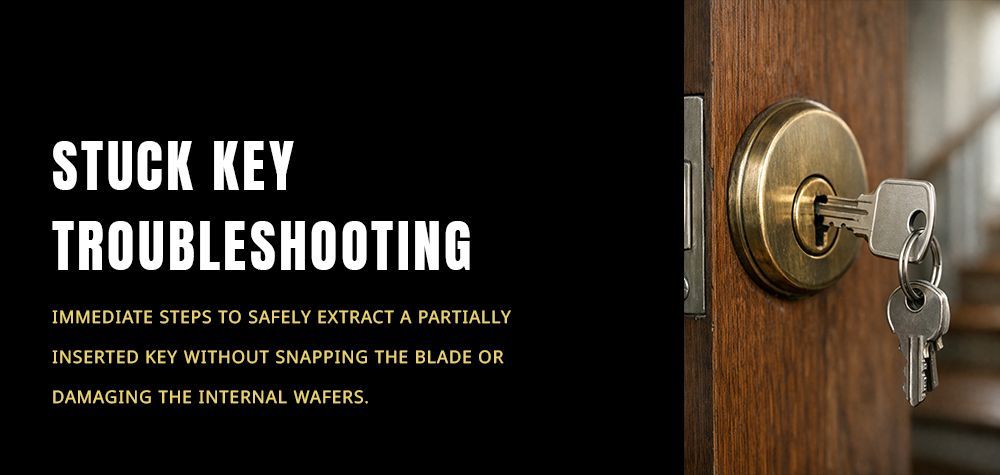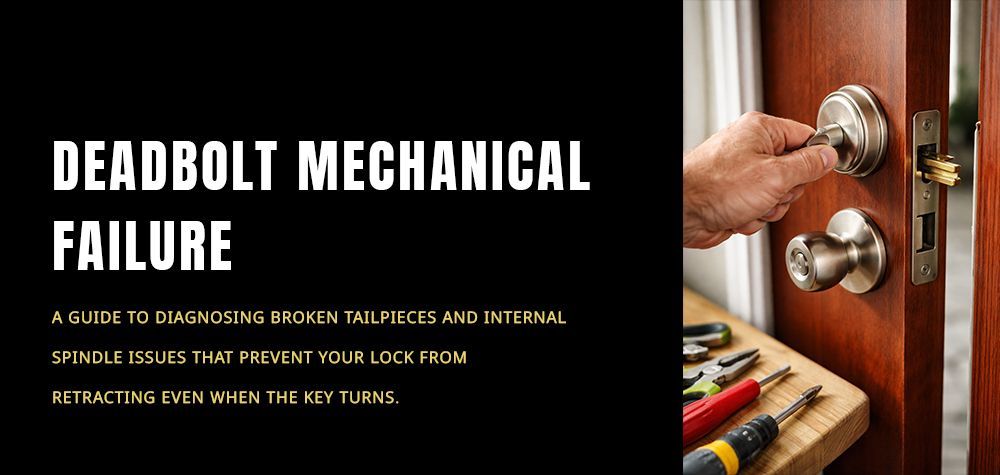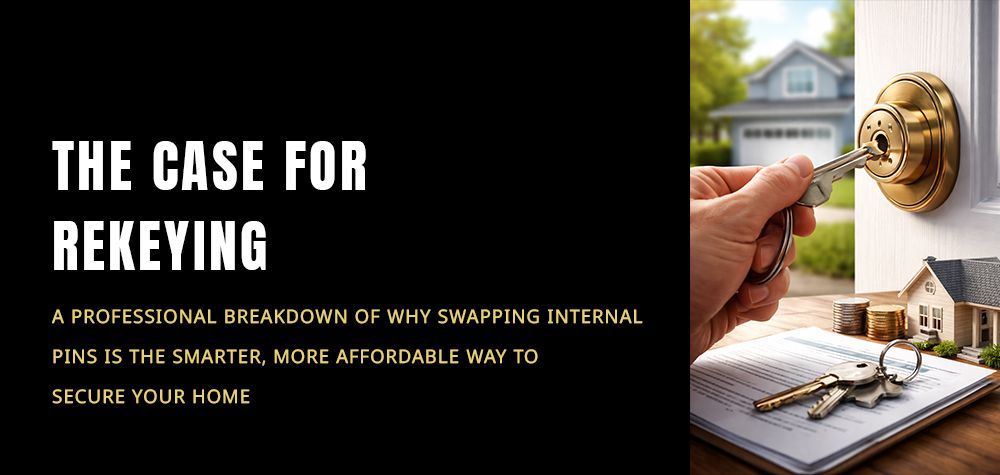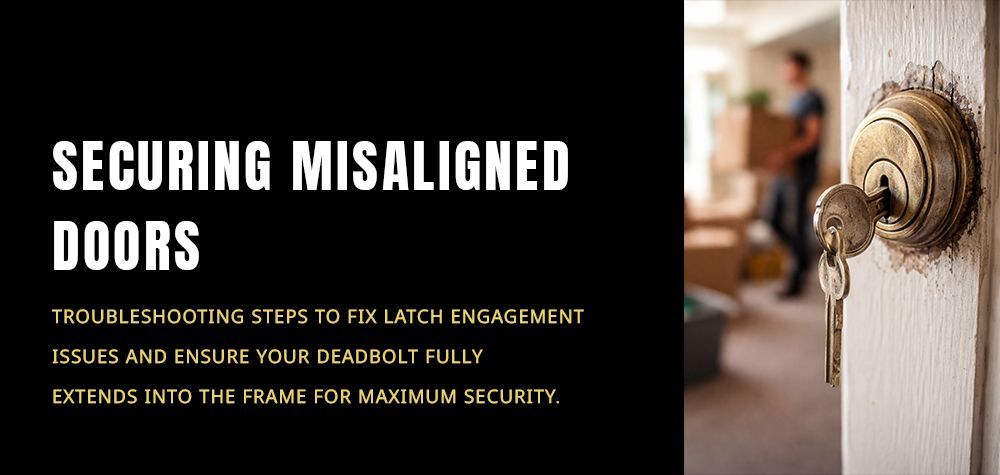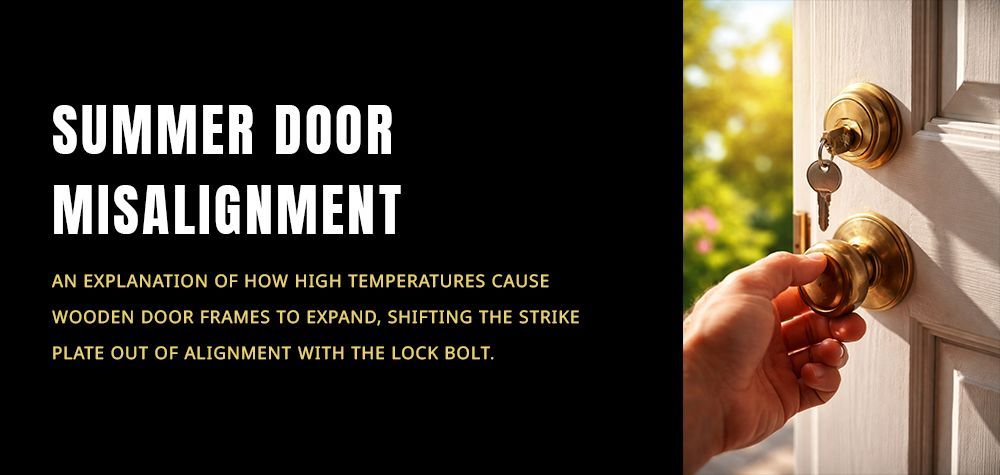Locks That Aren't That Easy to Pick: A Thief-Proof Guide
Securing your home or valuables doesn’t always require high-tech gadgets; it’s often about choosing the right type of lock. Some locks are more resistant to picking than others, and we’ll walk through the best options and tips to keep thieves at bay. Let's dive into some practical advice for choosing and using locks that are much harder to pick!
If Nearly All Locks Can Be Picked, Why Do We Still Use Them
1. Understanding Lock Picking: How It Works
Before diving into the types of locks, it's helpful to understand how lock picking works. A lock pick essentially manipulates the pins inside a lock to mimic the action of a key. A skilled thief can use this method to open certain locks within minutes. But, the better a lock is at resisting this kind of tampering, the harder it is to pick. So, what features make a lock pick-resistant?
2. Invest in High-Security Locks
High-security locks are your first line of defense against picking. These locks are designed with features that thwart most common picking tools and techniques.
- Keyway design: The keyhole of high-security locks is designed in a way that makes it harder for standard lock picks to fit inside.
- Pin tumblers: High-security locks often have pins that are harder to manipulate and might include security pins like spool or mushroom pins.
- Anti-drill and anti-bump technology: Many of these locks come with features that resist attempts to drill through or bump the lock (two common methods thieves use to gain entry).
Some popular brands include Medeco and Mul-T-Lock, both known for their superior resistance to picking.
3. Go for a Deadbolt Lock with a Full 1-Inch Throw
Deadbolt locks are considered more secure than spring bolt locks because they cannot be easily forced open. A deadbolt that features a full 1-inch throw will make it even more difficult for burglars to break in. A longer throw adds extra resistance to physical force, making it harder to manipulate.
4. Add a Secondary Lock: A Smart Investment
Adding a second lock for added security is always a great idea. You can install a chain lock, slide bolt, or even another deadbolt at a different height. This double-layered approach adds an extra barrier that will frustrate any would-be intruder.
5. Use Biometric or Smart Locks
Biometric locks (those that use fingerprints) or smart locks (those that work with phones or keycards) provide an additional level of security. These locks use technology that thieves can’t easily bypass, as they require personal identification or a complex passcode to open.
Some of the top biometric locks are from brands like Ultraloq or August, while Schlage and Yale offer reliable smart lock options.
6. Choose Locks with Anti-Picking Pins
There are specialized locks available with anti-picking pins, which are designed to make it nearly impossible to pick. These locks incorporate pins that are specifically designed to resist manipulation by lock pickers.
Look for locks that feature pins such as spool pins, mushroom pins, or tubular pins, as these make it significantly harder for a thief to gain entry.
7. Install a Lock with Key Control
Key control is a fantastic feature that ensures only authorized people can have duplicate keys made. Locks with key control often use specialized keyways that cannot be copied without the proper authorization from the manufacturer. This adds an extra layer of security and ensures that even if a thief gets access to a copy of your key, they can’t easily duplicate it.
8. Don’t Forget About the Lock Placement
Where you install your lock can make a big difference in its effectiveness. A lock is only as strong as the door or frame it’s mounted on. For example, a strong deadbolt on a flimsy door can still be easily compromised. Make sure your lock is installed in a solid frame and on a sturdy door.
9. Regularly Maintain Your Locks
Even the most high-tech locks need regular maintenance. Clean and lubricate the lock mechanism to ensure it’s functioning properly. A jammed or stiff lock can be easier to pick, so keeping your locks in top condition is important.
10. Use a Professional Locksmith for Installation
While DIY installation might seem tempting, it’s always best to have your locks installed by a professional locksmith. They can ensure that your locks are properly fitted, aligned, and in optimal condition. A poorly installed lock can undermine its effectiveness, even if it’s high-quality.
11. Bonus Tip: Reinforce Doors and Windows
Locks alone aren’t always enough to stop a determined thief. Consider reinforcing your doors and windows with extra measures like security bars, reinforced glass, or door frame reinforcements. These additional steps will provide extra protection, making it much harder for someone to break in, even if they bypass the lock.
Final Thoughts
While no lock is completely thief-proof, choosing a high-quality lock with anti-picking features, investing in extra security measures, and maintaining your locks will make your home or valuables much safer. Remember, the harder it is to pick a lock, the less likely a thief is to target your property. Always stay vigilant and make security a priority!
Call Us Any Time!


